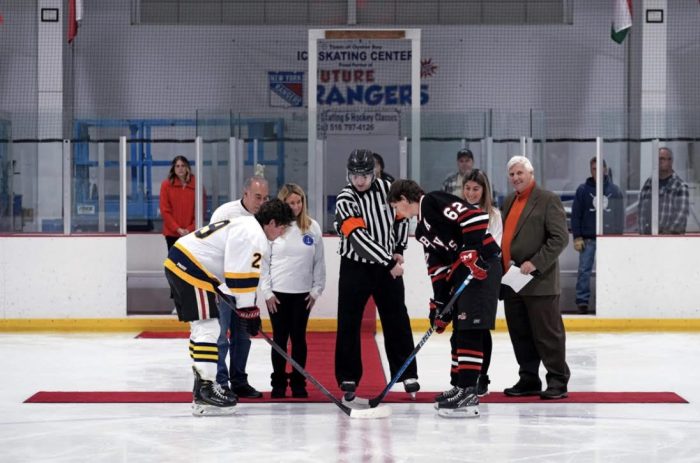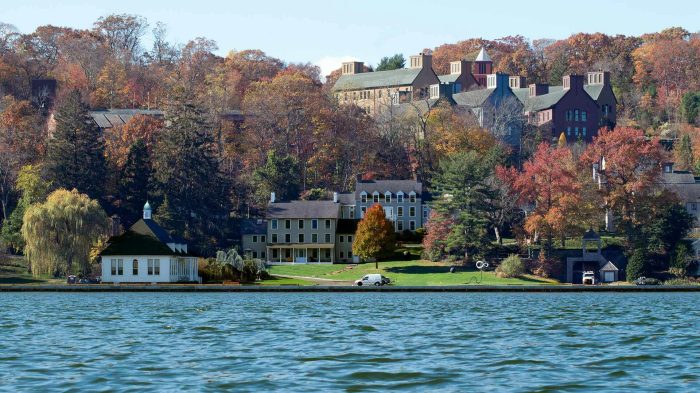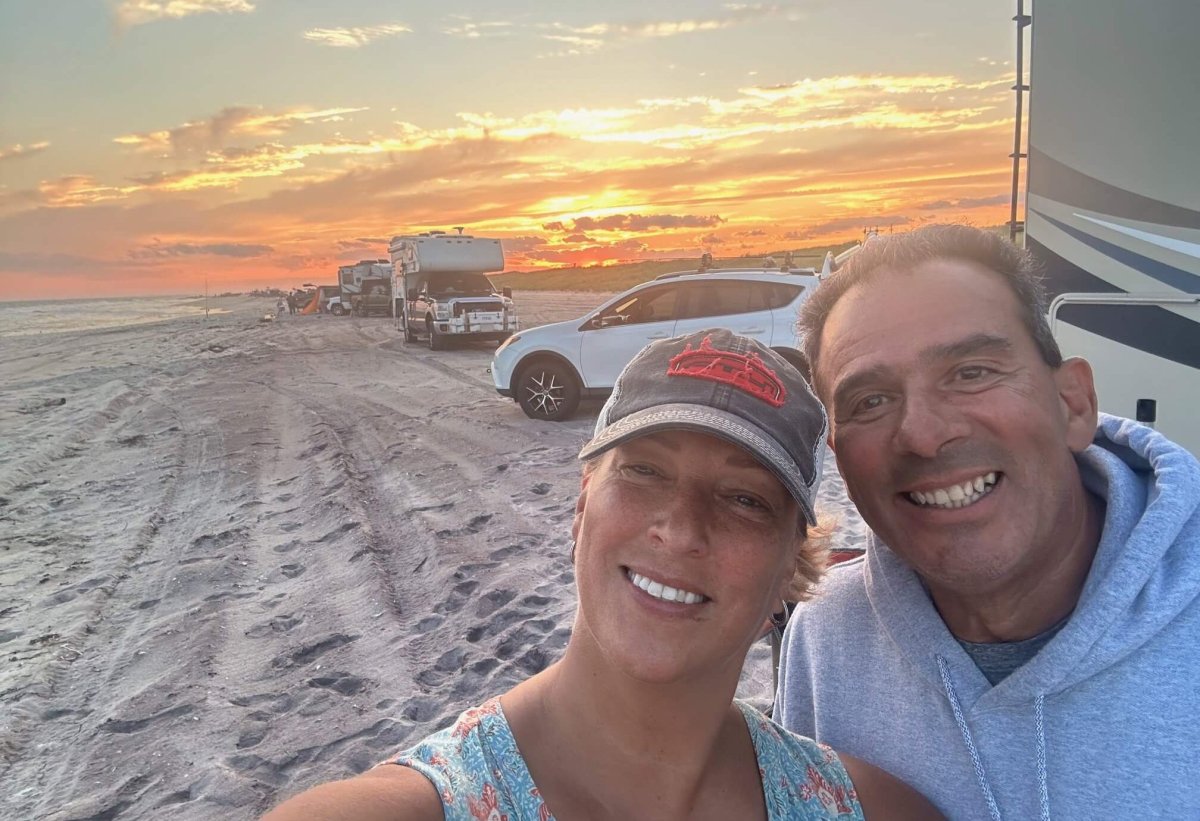David Levy, the board president of Sid Jacobson Jewish Community Center, and David Black, the executive director of Sid Jacobson JCC, sent out a letter to families that enjoy the center’s Camp Jacobson day camp on a 14.27 acre property in Brookville, stating that the camp would not be open for the summer of 2023 because the Village of Brookville filed a motion with the Supreme Court of New York to force the cease of operations on the property.
Parents, including Stephanie Small, were devastated. “I didn’t know there were any potential issues or it never even crossed my mind that this would be something that would happen,” Small said. “The camp is a really special place and it’s a place where my son loved to be and to go, and I was excited to send my daughter this summer also.” Small said she especially appreciated how her son was treated with fellow campers in the summer of 2020 after months of quarantining. She said counselors displayed empathy towards the children’s needs, especially after the traumatic experience of being a child during a pandemic.
“It was a travesty for many and a shock for many,” Black said. “It was very sad for many because of the relationships they’ve had… We were a very family oriented, close knit, joyful experience for our children as well as the families who came to us.”
Black explained the camp’s legal troubles began, allegedly, with the village several years after the camp was established.
“We asked to widen the driveway,” Black said, explaining that it was a safety matter. “Because it’s essentially a culvert, and buses and ambulances were not able to navigate it as well as we would have liked.”
Multiple public hearings were held on the camp’s request to widen the driveway, as well as to add features including additional bunks, restrooms and classrooms, and kitchen, dining hall, water supply, sanitary system and draining improvements.
During the hearings, nearby residents to the camp worried that the widened driveway would cause additional traffic and other safety concerns, and concerns were expressed that the noise from the camp impacts their quality of life. It was also questioned if the camp met the zoning requirements of being a religious and educational institution, and if emergency services could work around the narrow driveway. The Village of Brookville Board of Appeals, after receiving from the JCC a survey of the camp property, a survey of the driveway, a site map, plans for the driveway re-design, a memorandum in support of the decision and a full environmental assessment form, voted down the extension of the driveway and other improvements in 2017.
The JCC tried to annul the decision against the Zoning Board, and eventually ended up ceasing the preschool ran on the property because it wasn’t able to continue the program without the renovations.
On Aug. 22, 2022, the Village of Brookville enforced its zoning code by obtaining a permanent injunction preventing the JCC from operating a summer camp and daycare on the property. According to court documents, the Village of Brookville argued that the Day School and Camp operated by JCC does not qualify as a religious or educational use, and that the JCC’s camp operation is recreational, not academic in nature, both of which would, according to the Village of Brookville, violate its zoning codes.
“The village’s zoning board of appeals found that the summer camp use of the subject property was not permitted by the village’s zoning ordinance or by any conditional use,” John M. Chase, the attorney for the Village of Brookville wrote to the Syosset Jericho Tribune. “Thereafter, the Supreme Court, Nassau County held, and the Appellate Division, second Department confirmed, that the JCC is not a religious organization or educational institution which would be entitled to deferential zoning treatment under NY law, and therefore the operation of its summer camp at this location was in violation of the village’s zoning regulations… Irrespective of these court determinations, the JCC has continued to operate the summer camp in violation of the village’s zoning regulations leaving the village with no alternative but to now seek injunctive relief from the court. The village is compelled to enforce its zoning regulations in order to protect the health, safety and welfare of its residents, including the neighboring property owners whose quiet use and enjoyment of their properties and quality of life have been adversely impacted by the JCC’s illegal use.”
Black explained that representatives of JCC sat down with Brookville Mayor Daniel Serota to explain that the camp would operate in the parameters that the village would give them, but Serota and the village, according to the JCC, never gave those perameters. It should be noted there is no written proof of this interaction.
“There are many diverse institutions, such as LIU, NYIT, Nassau County BOCES, AHRC and several places of worship that call Brookville home and the village and these private interests have co-existed for decades,” Kim Devlin, spokesperson for the Village of Brookville, responded, in part, to the Syosset Jericho Tribune. “To that end, the village spent years trying to work with Camp Jacobson’s leaders to come to a mutually beneficial solution, to no avail, which is very unfortunate for all involved.”
For some background, the former property owner operated a school and summer camp called Robin Hood on the property from 1959 to 2008 before JCC began operating a Jewish preschool and summer day camp program on the property since.
Black referenced past litigation relating to the Village of Brookville Zoning Board of Appeals towards the Robin Hood Camp. In the 1970s, an application to construct a 32 foot X 82 foot pool was denied because the board found no evidence of academic programming.
“Why is simply a mystery… Nobody really knows for sure what their objectives are,” Black said.
However, in 1995, the board granted applications for the swimming pool and other structures.
Camp Jacobson is not going down without a fight.
Attorney Michael H. Sahn, who is representing JCC, requested a cross motion, a legal pleading or document filed in opposition to a motion filed by a moving party, in November, with the Nassau County Supreme Court. Arguments by Sahn included that; the village’s zoning code violates the Religious Land Use and Institutionalized Person’s Act, which prohibits the imposition of burdens on the ability of prisoners to worship as they please and gives churches and other religious institutions a way to avoid zoning law restrictions on their property use; surrounding non-religious institutions, including the Tam O’Shanter Country Club, North Shore Equestrian Center and Long Island University operate outdoor recreation activities; among other arguments.
As for the latest updates on the cross motion; the village has until Jan. 4 to file opposition papers, and the JCC has until Jan. 25 to file reply papers, if it so chooses. Then the motion will be fully submitted for decision by the court.
The attorney, Sahn, said he’d be surprised if there was a decision on the motion before April 1. The court may also want to hear oral argument, which could delay a decision as well.
Camp Jacobson Fights To Return

Sid Jacobson JCC was a special place for many of its campers. (Photo courtesy Sid Jacobson JCC)































